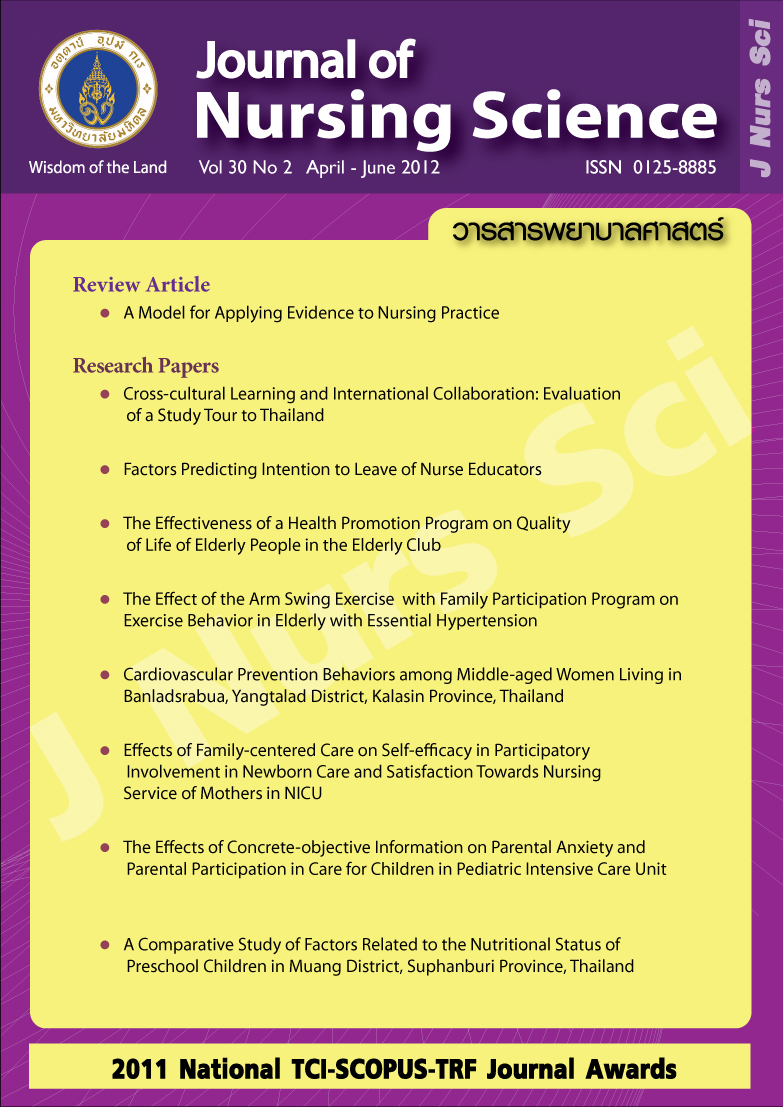A Comparative Study of Factors Related to the Nutritional Status of Preschool Children in Muang District, Suphanburi Province, Thailand
Main Article Content
Abstract
Purpose: To study the food consumption behavior of preschool children and comparing the factors related to the nutritional status between preschool children with obese and normal weight.
Design: Descriptive comparative study.
Methods: The study sample included 144 dyads of mothers and their children aged 3-6 years divided into obese and normal weight children with 72 each. A set of questionnaires were distributed to the mothers asking about child, mother, and family factors. Data were analyzed using descriptive statistics, chi-square test, and t-test.
Main findings: Among 144 preschool children, 74.3% of them had food consumption behavior at moderate level, and 12.5 percent at low level. It was further found that the following factors were significantly different between the obese and the normal weight preschool children (p < .05): birth weight, breast feeding during early four months, food consumption behavior of children, maternal body mass index, and food consumption behavior of family. However, the mother’s education and occupation, sufficient family income, family activities, did not differ in both groups (p > .05).
Conclusion and recommendations: The study results suggest the importance of nursing
interventions that promote antenatal care for desired fetal growth and birth weight, breast feeding as long as possible, roles of family members as a good model of food consumption behavior, and proper physical activities to correct and prevent overweight.
Article Details
Copyright Notice: Nursing Science Journal of Thailand has exclusive rights to publish and distribute the manuscript and all contents therein. Without the journal’s permission, the dissemination of the manuscript in another journal or online, and the reproduction of the manuscript for non-educational purpose are prohibited.

Disclaimer: The opinion expressed and figures provided in this journal, NSJT, are the sole responsibility of the authors. The editorial board bears no responsibility in this regard.


